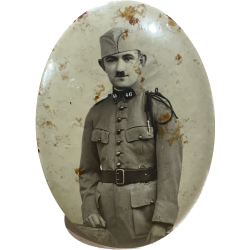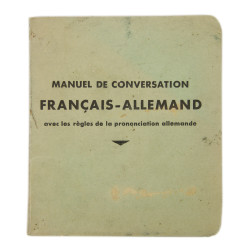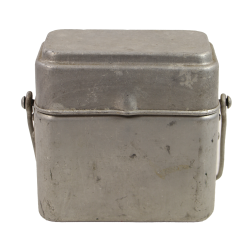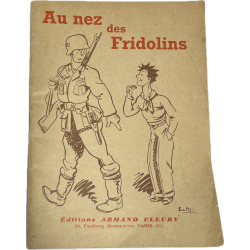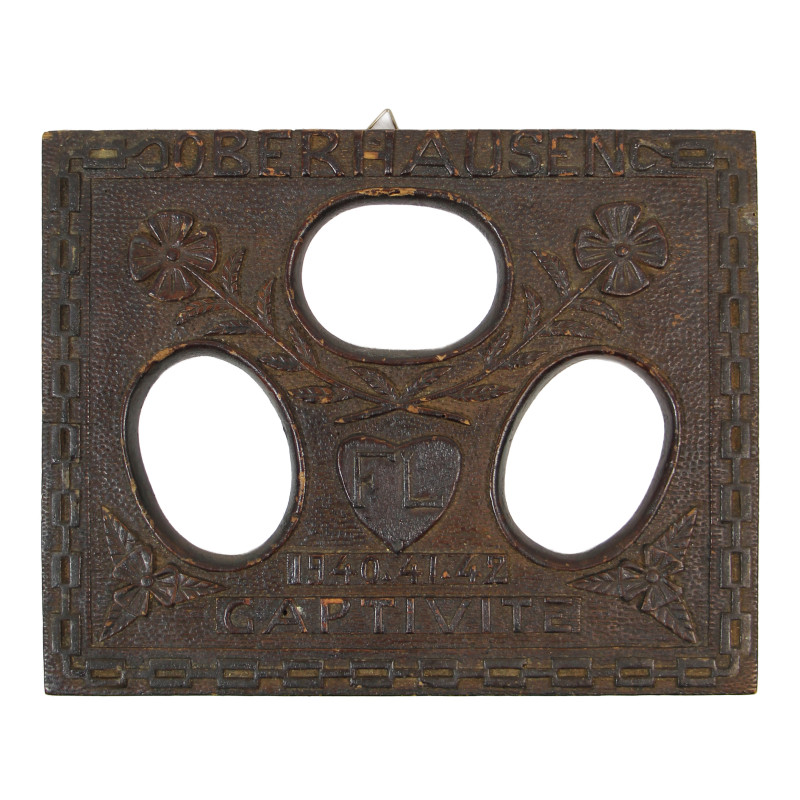






Interesting genuine WWII handcrafted wood picture frame, made by some French civilian worker in the German internment camp of Oberhausen, Ruhr between 1940 and 1942.
Various elements have been carved around and between the three oblong emplacements intended for photographs -- a chain symbolizing detention, name Oberhausen, flowers, a heart encasing initials FL, dates 1940-41-42 and mention Captivité.
A somehow uncommon personal souvenir, in good overall condition. Dimensions: 7.8in x 9.8in x 0.5in.
You might also like

Interesting genuine WWII handcrafted wood picture frame, made by some French civilian worker in the German internment camp of Oberhausen, Ruhr between 1940 and 1942.
Various elements have been carved around and between the three oblong emplacements intended for photographs -- a chain symbolizing detention, name Oberhausen, flowers, a heart encasing initials FL, dates 1940-41-42 and mention Captivité.
A somehow uncommon personal souvenir, in good overall condition. Dimensions: 7.8in x 9.8in x 0.5in.
The historical artifacts for sale at PARATROOPER’s are intended for collectors, history enthusiasts, historians and museum curators.
These items do not glorify or promote any of the political, ideological or racial opinions related to the global conflicts that bathed the 20th century in blood.
Besides, we remind you that Article R.645-1 of the French Penal Code establishes fines applicable to fifth class contraventions (except in the specific cases of a filming, show or exhibition which refer to historical events) for any individual who wears a uniform, insignia or symbol reminiscent of those worn by members of the various organizations declared criminal in application of Article 9 of the Charter of the International Military Tribunal annexed to the London Agreement of August 8, 1945 – SS, SD, Gestapo, Nazi leaders (the Führer, the Reichsleitung, the Gauleiters and their main collaborators, the Ortsgruppenleiter, the Zellenleiter and the Blockleiter), or reminiscent of those worn by any person found guilty, by a French or International Jurisdiction, of one or several crimes against humanity established by Articles 211-1 to 212-3 or mentioned in Law No. 64-1326 of December 26, 1964.
The Code provides additional penalties, including the confiscation of the items used or intended for committing the offence.

